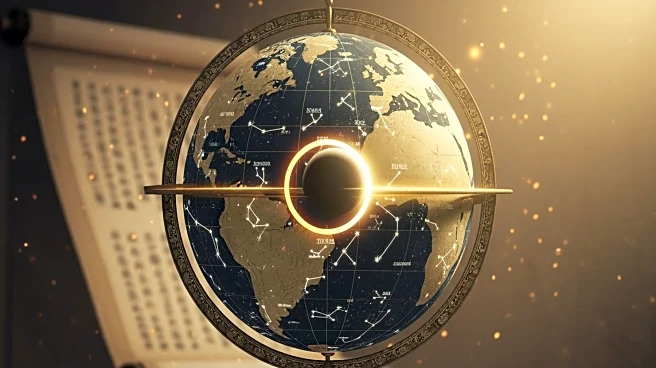What's Happening?
The earliest documented solar eclipse, dating back to October 22, 2137 B.C.E., has been identified through ancient Chinese texts. This event is recorded in the *Shujing*, a historical text traditionally
attributed to Confucius. The eclipse is described as a celestial event where 'the Sun and Moon did not meet harmoniously in Fang,' a reference to a section of the sky in Scorpius. The event occurred during the reign of Emperor Zhong Kang of the Xia Dynasty. Historical narratives suggest that royal astrologers He and Ho failed to predict the eclipse, leading to their alleged execution, although this story is likely apocryphal.
Why It's Important?
This ancient record highlights the long-standing human fascination with celestial events and the development of early astronomical observations. The identification of this eclipse provides insight into the historical understanding of astronomy in ancient China and underscores the importance of celestial events in shaping cultural and scientific narratives. The story of the astrologers He and Ho, whether true or not, reflects the high stakes associated with astronomical predictions in ancient societies, where such events were often seen as omens with significant political and social implications.










